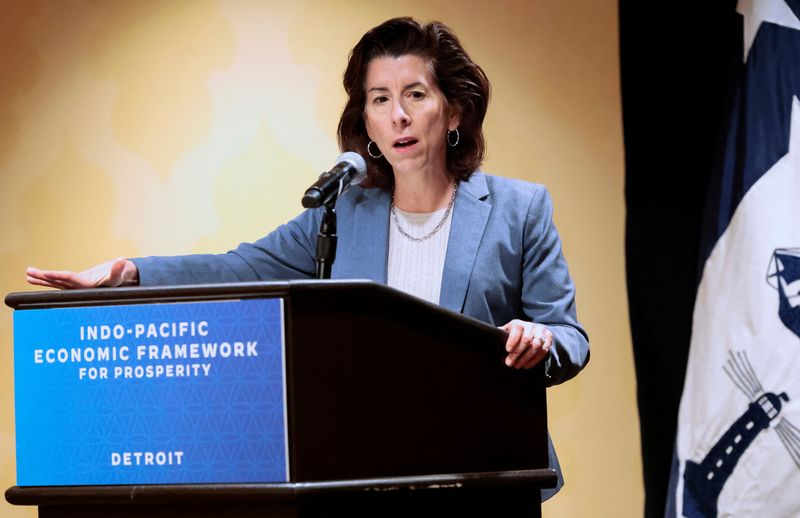By Andrea Shalal and David Ljunggren
(Reuters) - The United States on Tuesday criticized China for reducing the transparency of its reporting on basic economic data in recent months, and for cracking down on firms in China that had been providing such data, calling its behavior irresponsible.
White House national security adviser Jake Sullivan said the U.S. had seen less openness and transparency in China's reporting of youth unemployment and other data, while preventing other firms from publishing information on the "puts and takes in the Chinese economy."
"These are not, in our view, responsible steps," he said. "For global confidence, predictability and the capacity of the rest of the world to make sound economic decisions, it's important for China to maintain a level of transparency in the publication of its data."
Sullivan's comments came hours after news that Commerce Secretary Gina Raimondo would travel to Beijing, the third member of President Joe Biden's cabinet to do so in recent months, a move he said underscored Washington's desire to maintain communications with Beijing.
Sullivan also took aim at what he called China's "coercive" lending practices under its Belt and Road infrastructure initiative. He said Biden would push to boost the lending capacity of the World Bank and the International Monetary Fund to provide a 'credible alternative' at the upcoming Group of 20 leaders summit in India.
Biden's request to Congress for supplemental budget funding for both institutions would help leverage nearly $50 billion in lending for middle income and poor countries from the United States alone, and up to $200 billion around the world, Sullivan said.
He said the U.S. was not staking a claim that these multilateral institutions were Western institutions, but said they could provide a "positive, affirmative alternative to what is a much more opaque, more coercive method, which is the Belt and Road Initiative."
He acknowledged China is a major shareholder in both the World Bank and IMF, and that did not stand in the way of them working to aid low and middle-income countries.

"It's about being for an affirmative vision of high standards, transparent, sustainable financing," he said.
Sullivan said Raimondo would carry the message that the United States was not seeking to decouple from China, but it focused on "protecting our national security and ensuring resilient supply chains alongside our allies and partners while we continue our economic relationship and our trade relationship".